Opinion
Muslims and ban on cattle slaughter
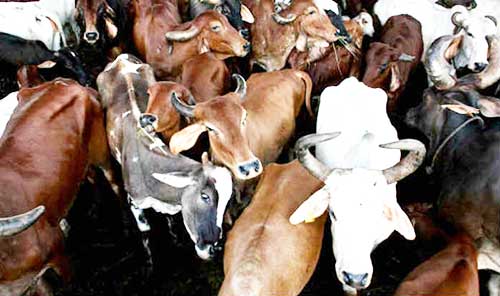
“The greatness of a nation and its moral progress can be judged by the way its animals are treated.”-Mahatma Gandhi
Sri Lanka has an ancient culture. We have been told about vehicles that flew, birds that announced the birth of gods: a wonderment of unexpected pleasures. Our myths speak of a land in which all living things flourished, where humans communicated directly with animals and people had learnt that it is the purpose of life to engender more life. As Creation is the supreme force in the universe, the beneficence of life and its comprehension through love, is to facilitate as many expressions of life as possible. We have an ancient tradition that a man may become a god by emulating the qualities of the divine. As the sun is the source of life on the planet, our forefathers recognized it as the fertility symbol nonpareil. As worshippers of Surya, our behaviour would be arya, as elevated and exalted as the source.
Every life is a unique personal undertaking and the only thing an individual can know is itself. Every other knowing is external and it is what Huxley meant when he said we were each an island universe with every experience only conveyable third hand. No one actually can know what it is like to be anyone else. As such, enlightened self-interest is the only personal inquiry we can make, with the all- important caveat that in our self-discovery we may not interfere with anything else’s self-discovery.
Hence ahimsa comes from himsa, and is a crucial aspect of the great or common consensus (Mahasammata) that if Man lives in Dhamma, the land, people, flora and fauna would be safe. This recognition of the sacred nature of life made it incumbent that we live our lives disturbing other living systems as little as possible.
The book, Portuguese Encounters with Sri Lanka and the Maldives, ed. Chandra Richard De Silva, Ashgate, 2009, highlights that there was no slaughter of cattle in Lanka prior to colonisation:
“… In this country there are many false beliefs sown by the devil, and to eradicate them there is a need for much time and trouble. I mention those that I remember, for I do not know them all. There is a class of gentiles who do not kill any living creature, not even the most poisonous snakes, nor any insect or worm whatever. They do not eat anything that has been killed, whether it is meat or fish. They do not eat bread, however hungry or needy they might be. Their food is made up of the leaves of a certain creeper (betel leaves) that climbs other trees like ivy. These leaves are smeared with the same kind of lime that they use for whitewashing their houses…
“…There is another class of people who do not kill any living creatures, except those they themselves need for their food, such as rats and salamanders and lizards of the forests; for they do not eat beef or the flesh of other animals. There is another class of people who kill fish, and this is only the caste they call paravas. These do not kill any poisonous insect they may find in their house. Yet all these people, if they choose and are able to do so, kill men, and their doctrine does not forbid it. There is another class of people that eats fowl and wild boar and deer, but does not eat the flesh of cows, since they believe their souls enter into cows after death; they will never kill a cow and eat its flesh…”
In the Lanka of Mahasammata, one’s duty to one’s village outweighed any perceived duty to oneself. One must make one’s contribution to the society in which one lived. A vocational caste system handed down secrets to successive generations, in a system where one’s knowledge was one’s wealth, with the Divine as the Supreme Master of one’s craft, one performs one’s duty with an aim to perfection in union of mind and spirit so each attempt brought one closer to the Ultimate Prize. In a land ruled by the Unseen King, in both metaphor and practise, the King embodies Mahasammata and sets the standard for the people. The people know that if they live in dhamma, Dhamma would protect them, and the land would be safe. In this milieu of trust and obligation, anyone who broke faith and violated trust was banished from the village. This was the origin of the ahikuntakayas. At this time beef-eating was punished by banishment from one’s caste and village, as edicts stemming from the advent of the Portuguese indicate.
My teacher, farmer Mudiyanse Tennekoon, believed that only a return to Mahasammata could rescue our nation, as it had become clear that the fate of Lanka was drenched in a post-colonial experience that threatened to smother us in the fire of unrighteousness. It seemed to him that the wisdom of our ancients, which vouchsafed consensus as the legitimate form of governance, had been jettisoned for a system based in dissent and acrimonious debate. Further, it seemed that certain elemental forces of globalist origin were cutting swathes to the interior of our country, such that the viability of the essential core of our island’s life was at risk. If the government continues implementing the various sanctions of the globalist agendas, our subsistence farmers are at great risk, and with them the lifeblood of our country and culture. A re-establishment of ahimsa was a necessary step for the restoration of Mahasammata.
As vouchsafed by Arabi Veediya in Anuradhapura, Arabs have been coming to Lanka long before the birth of the Prophet. Though modern Muslims sometimes scoff at customs and rituals of the oral tradition, and seek their answers only in texts, Kataragama has long been associated in Islamic esoterism with El Khidr, the Green Man of Islam. The idea of El Khidr also predates Islam, as he is commonly held to be the person whom Moses met at the Juncture of two rivers and who instructed him in the Tradition. Consequently, if the Muslims of Sri Lanka were doing something so abhorrent to the culture of the island, when the Portuguese came looking for them, the Sinhala kings would not have hidden them but handed them over to the Portuguese.
On Sep 12, 2014, with some friends we began a campaign to end cattle-slaughter in Sri Lanka, and while I went around the country collecting signatures for a petition to parliament one question I was asked over and over again was this: “What did I expect the reaction of the Muslims of Sri Lanka to be to my campaign?” I replied that many people I had spoken to, some in my own family, had been against this campaign, and many others were wholeheartedly supportive of me, all urged utmost caution. I said that I had been able to make my immediate family aware that this was not a scurrilous exercise, but a restoration of ahimsa that colonialism had destroyed. I appealed to the generally accepted personality of the Prophet, as one who loved amity and good manners, and who, as Muslim tradition would have it, was not a person to hurt the feelings or sensibilities of others. In this I spoke to the spirit of the Revelation, which to me is as much about equity and social justice as it is about transcendental reality.
There is no doubt that Muslims are not barred by tradition, custom or revelation from eating beef; however, it is also plain that a claim to a democratic right to kill is a symptom of our postcolonial dystopia. Mahasammata is nothing less than an exhortation to behave well, to have good manners. And good manners, as my late wife Jeanne pointed out, is never more than consideration for other people and making them comfortable. As such, I believe that as a Sri Lankan Muslim, it is incumbent on me to respect the mores of my compatriots and to live in a way that will lead to greater social cohesion, amity and unity of purpose. Perhaps, Muslims should ask themselves why pre-colonial Sri Lanka fitted every description of Paradise in the Qur’an.
FEISAL MANSOOR
Convenor, Saradiel Movement
Saradiel.com
- News Advertiesment
See Kapruka’s top selling online shopping categories such as Toys, Grocery, Flowers, Birthday Cakes, Fruits, Chocolates, Clothing and Electronics. Also see Kapruka’s unique online services such as Money Remittence,News, Courier/Delivery, Food Delivery and over 700 top brands. Also get products from Amazon & Ebay via Kapruka Gloabal Shop into Sri Lanka.
Opinion
Take Human Rights seriously, not so much the council or office
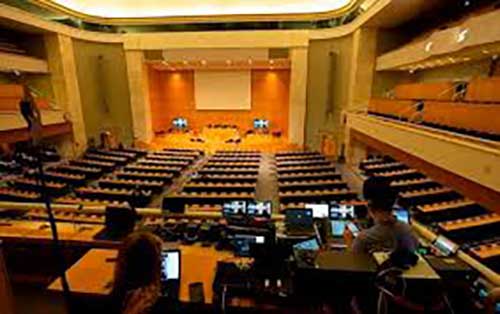
By Dr Laksiri Fernando
The 46th Session of the UN Human Rights Council started on 22 February morning with obvious hiccups. The Office, to mean the Office of the UN High Commissioner for Human Rights, finally decided to hold all sessions virtually online, only the President of the Council and the assistants in the high table sitting at the UN Assembly Hall in Geneva. The President, Ms. Nazhat Shammen Khan, Ambassador from Fiji in Geneva, wearing a saree, was graceful in the chair with empty seats surrounding.
In the opening session, the UN General Assembly President, UN General Secretary, UN High Commissioner for Human Rights, and Head of Foreign Affairs, Switzerland (as the host country), addressed remotely the session. In fact, there was no need for Switzerland to have a special place, as the UN is independent from any host country. Switzerland is fairly ok, however, if this tradition is followed, the UN General Assembly may have to give a special place to the US in New York.
Initial Addresses
UN General Secretary, Antonio Guterres’ address could have been quite exemplary if he gave a proper balance to the developed and developing countries. He talked about racism and fight against racism but did not mention where racism is overwhelmingly rampant (US and Europe) and what to do about it. Outlining the human rights implications of Covid-19 pandemic, he made quite a good analysis. It was nice for him to say, ‘human rights are our blood line (equality), our lifeline (for peace) and our frontline (to fight against violations).’ However, in the fight against violations, he apparently forgot about the ‘blood line’ or the ‘lifeline’ quite necessary not to aggravate situations through partiality and bias. He never talked about the importance of human rights education or promoting human rights awareness in all countries.
His final assault was on Myanmar. Although he did not call ‘genocide,’ he denounced the treatment of Rohingyas as ethnic cleansing without mentioning any terrorist group/s within. His call for the release of Aung San Suu Kyi and other civilian leaders undoubtedly should be a common call of all. However, he did not leave any opening for a dialogue with the military leaders or bring back a dialogue between Aung San and Min Aung, the military leader. With a proper mediation, it is not impossible. Calling for a complete overhaul as the young demonstrators idealistically claim might not be realistic.
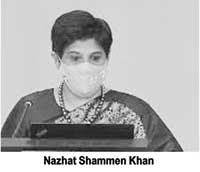 High Commissioner Michelle Bachelet’s address was brief and uncontroversial this time without mentioning any country or region. It is clear by now perhaps she is not the real author of the Report against Sri Lanka, but someone probably hired by the so-called core-group led by Britain. Her major points were related to the coronavirus pandemic trying to highlight some of the socio-economic disparities and imbalances of policy making that have emerged as a result. The neglect of women, minorities, and the marginalized sections of society were emphasized. But the poor was not mentioned. As a former medical doctor, she also opted to highlight some of the medical issues underpinning the crisis.
High Commissioner Michelle Bachelet’s address was brief and uncontroversial this time without mentioning any country or region. It is clear by now perhaps she is not the real author of the Report against Sri Lanka, but someone probably hired by the so-called core-group led by Britain. Her major points were related to the coronavirus pandemic trying to highlight some of the socio-economic disparities and imbalances of policy making that have emerged as a result. The neglect of women, minorities, and the marginalized sections of society were emphasized. But the poor was not mentioned. As a former medical doctor, she also opted to highlight some of the medical issues underpinning the crisis.
Then came the statements from different countries in the first meeting in the following order: Uzbekistan, Colombia, Lithuania, Afghanistan, Poland, Venezuela, Finland, Fiji, Moldova, Georgia, Kazakhstan, Equatorial Guinea, Vietnam, Belgium, and Morocco. The obvious purposes of these statements were different. Some countries were apparently canvassing for getting into the Human Rights Council at the next turn perhaps for the purpose of prestige. Some others were playing regional politics against their perceived enemies. This was very clear when Lithuania and Poland started attacking Russia.
But there were very sincere human rights presentations as well. One was the statement by the President of Afghanistan, Mohammad Ashraf Ghani. He outlined the devastating effects that Afghanistan had to undergo during the last 40 years, because of foreign interferences. The initial support to Taliban by big powers was hinted. His kind appeal was to the UN was to go ‘beyond discourse to practice’ giving equal chance to the poor and the developing countries to involve without discrimination.
Controversial Presentations
China’s Foreign Affairs Minister, Wang Yi, made his presentation almost at the end of the first day. This is apparently the first time that China had directly addressed the Human Rights Council. Beginning with outlining the devastating repercussions of the coronavirus pandemic he stressed that the world should face the challenges through ‘solidarity and cooperation.’ He broadened the concept to human rights solidarity and cooperation. His expressed views were quite different to the others, particularly to the Western ones.
He frankly said that what he expresses are the views of China on human rights without claiming those are absolute truths or forcing others to believe or implement them. There were four main concepts that he put forward before the member countries. First, he said, “We should embrace a human rights philosophy that centres on the people. The people’s interests are where the human rights cause starts and ends.” Second, he said, “we should uphold both universality and particularity of human rights. Peace, development, equity, justice, democracy, and freedom are common values shared by all humanity and recognized by all countries.” “On the other hand,” he said, “countries must promote and protect human rights in light of their national realities and the needs of their people.”
“Third,” he said, “we should systemically advance all aspects of human rights. Human rights are an all-encompassing concept. They include civil and political rights as well as economic, social, and cultural rights.” He then emphasized, “Among them, the rights to subsistence and development are the basic human rights of paramount importance.” Fourth, “we should continue to promote international dialogue and cooperation on human rights. Global human rights governance should be advanced through consultation among all countries.”
It was on the same first day before China, that the United Kingdom launched its barrage against several countries not sparing Sri Lanka. The Foreign Secretary, Dominic Raab, delivered the statement from top to bottom attacking alleged violating countries on human rights. But there was no mentioning of Israel for the repression of Palestinians or the systemic racism rampaging in the United States, including the 6 January attacks on the Capitol by extremist/terrorist groups.
His first sermon was on Myanmar without acknowledging the British atrocities or mismanagement of this poor and diverse country during the colonial period. He was quite jubilant over implementing sanctions and other restrictions over the country. Many sanctions, in my opinion, are extortions. Undoubtedly, Aung San Suu Kyi and other leaders should be released, and democracy restored. This is a task of the whole council and when one or two countries try to grab the credit, there can be obvious reservations of others.
His further scathing attacks were against Belarus, Russia, and China. Some appeared factually correct but not necessarily the approach or the motives genuine. The following is the way he came around Sri Lanka. He said,
“Finally, we will continue to lead action in this Council: on Syria, as we do at each session; on South Sudan; and on Sri Lanka, where we will present a new resolution to maintain the focus on reconciliation and on accountability.”
‘Action’ to him basically means repeatedly passing resolutions, of course imposing economic and other sanctions. He said, “as we do at each session”; like bullying poor or weak countries at each session. Can there be a resolution against Russia or China? I doubt it.
What would be the purpose of presenting a resolution against Sri Lanka? As he said, “to maintain the focus on reconciliation and on accountability.” This will satisfy neither the Tamil militants nor the Sinhalese masses. But it might satisfy the crafty Opposition (proxy of the defeated last government). This is not going to be based on any of the actual measures that Sri Lanka has taken or not taken on reconciliation or accountability. But based on the ‘Authoritarian and Hypocritical Report’ that some anti-Sri Lankans have drafted within the Office of the High Commissioner for Human Rights. This what I have discussed in my last article.
In this context, successful or not, the statement made by the Sri Lanka’s Minister of External Affairs, Dinesh Gunawardena, in rejecting any resolution based on the foxy Report of the Office of the UN High Commissioner for Human Rights, in my concerned opinion, is absolutely correct.
Opinion
President’s energy directives ignored by the Power Ministry: Another Point of View

Dr Tilak Siyambalapitiya
Dr Janaka Rathnasiri laments (The Island 19 Feb 2021) that the Power Ministry has ignored the President’s directive to draw 70% of energy from renewable sources by 2030. I saw the approved costs of electricity production for 2019, published by the Public Utilities Commission (PUCSL).
PUCSL has also approved the prices to sell electricity to customers. Although various customers pay at various “approved” prices, the average income from such “approved” prices in 2019 was Rs 17.02 per unit. It is not only the Ministry, according to Dr Rathnasiri, ignoring the President; PUCSL is also breaking the law, which says prices and approved costs should be equal.
 So there is already an illegal gap of Rs 21.59 minus 17.02 = Rs 4.57 per unit of electricity sold. If electricity prices are not to be increased, as stated by many in the government and PUCSL, let us say the following: Distribution costs should decrease by 0.57 Rs per unit. Generation costs should decrease by Rs 4.00 per unit.
So there is already an illegal gap of Rs 21.59 minus 17.02 = Rs 4.57 per unit of electricity sold. If electricity prices are not to be increased, as stated by many in the government and PUCSL, let us say the following: Distribution costs should decrease by 0.57 Rs per unit. Generation costs should decrease by Rs 4.00 per unit.
PUCSL also published the approved cost of purchasing or producing electricity from various sources for 2019. The actual energy values were different to what was approved, but let us stick to PUCSL approved figures:
I suggest Dr Rathnasiri fills-up the following table, to show how much electricity will cost in 2030 to produce and deliver, if the President’s 70% target is to be achieved and for PUCSL to abide by the law. Let us assume that electricity requirement in 2030 will be double that of 2019.
 Since PUCSL has to save Rs 4 from 13.92, the average selling price for energy should be Rs 13.92 minus 4.00 = Rs 9.92. With a target network loss of 7% (in 2019 it was 8.4%), the average cost of production has to be Rs 9.27 per unit. Eight cages have to be filled-up by Dr Rathnasiri.
Since PUCSL has to save Rs 4 from 13.92, the average selling price for energy should be Rs 13.92 minus 4.00 = Rs 9.92. With a target network loss of 7% (in 2019 it was 8.4%), the average cost of production has to be Rs 9.27 per unit. Eight cages have to be filled-up by Dr Rathnasiri.
In 2012, PUCSL approved the energy cost of electricity produced from coal power to be 6.33 Rs per kWh. In 2019, PUCSL approved 9.89 (56% increase). For renewable energy, it was 13.69 in 2012, and 19.24 in 2019 (a 40% increase, but double the price of electricity from coal fired generation). In 2012, rooftop solar was not paid for: only give and take, but now paid Rs 22, against Rs 9.89 from coal. There seems to be something wrong. The price reductions of renewable energy being promised, being insulated from rupee depreciation, are not happening? Either Sri Lanka must be paying too little for coal, or it may be renewable energy is severely over-priced?
On coal we hear only of some corruption every now and then; so Sri Lanka cannot be paying less than it costs, for coal.
Enough money even to donate
vaccines
 Another reason for the Ministry of Power to ignore the President’s directive may be the Ministry’s previous experience with similar Presidential directives. In 2015, the President at that time cancelled the Sampur coal-fired power plant, and the Ministry faithfully obliged. That President and that Prime Minister then played ball games with more power plants until they were thrown out of power, leaving a two-billion-dollar deficit (still increasing) in the power sector. Not a single power plant of any description was built.
Another reason for the Ministry of Power to ignore the President’s directive may be the Ministry’s previous experience with similar Presidential directives. In 2015, the President at that time cancelled the Sampur coal-fired power plant, and the Ministry faithfully obliged. That President and that Prime Minister then played ball games with more power plants until they were thrown out of power, leaving a two-billion-dollar deficit (still increasing) in the power sector. Not a single power plant of any description was built.
Where is this deficit? You do not have to look far. In the second table, replace 24.43 with 9.89, to reflect what would have happened if Sampur was allowed to be built. The value 12.79 will go down to 8.55, well below the target of Rs 9.27 per unit to produce. Not only would CEB and LECO report profits, but the government too could have asked for an overdraft from CEB to tide over any cash shortfalls in the treasury. All this with no increase in customer prices. Producers of electricity from renewable energy could enjoy the price of 19.24 Rs per unit. And that blooming thing on your rooftop can continue to enjoy Rs 22 per unit. The Minister of Power, whom Dr Rathnasiri wants to replace with an army officer, would have been the happiest.
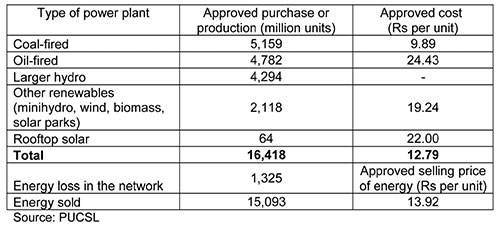 In the absence of Sampur (PUCSL’s letter signed by Chairman Saliya Mathew confirmed cancellation and asked CEB not to build it), PUCSL approved electricity to be produced at Rs 21.59 and sold at Rs 17.02 per unit. The annual loss would be Rs (21.59 – 17.02) x 15,093 = Rs 69 billion per year of approved financial loss. Sri Lanka has a Telecom regulator, an Insurance regulator, a Banking regulator, who never approve prices below costs. Sometime ago the telecom regulator asked the operators to raise the prices, when operators were proposing to reduce prices amidst a price war. But the electricity industry regulator is different: he approves costs amounting to 27% more than the price, not just once but, but continuously for ten long years !
In the absence of Sampur (PUCSL’s letter signed by Chairman Saliya Mathew confirmed cancellation and asked CEB not to build it), PUCSL approved electricity to be produced at Rs 21.59 and sold at Rs 17.02 per unit. The annual loss would be Rs (21.59 – 17.02) x 15,093 = Rs 69 billion per year of approved financial loss. Sri Lanka has a Telecom regulator, an Insurance regulator, a Banking regulator, who never approve prices below costs. Sometime ago the telecom regulator asked the operators to raise the prices, when operators were proposing to reduce prices amidst a price war. But the electricity industry regulator is different: he approves costs amounting to 27% more than the price, not just once but, but continuously for ten long years !
That is 370 million dollars per year as of 2019, the economy is spending, and for years to come, to burn oil (and say we have saved the environment). Did the Minister of Health say we are short of 160 million dollars to buy 40 million doses of the vaccine? Well, being a former Minister of Power, she now knows which Presidential “order” of 2015 is bleeding the economy of 370 million dollars per year, adequate to buy all vaccines and donate an equal amount to a needy country.
Prices are the production costs approved by PUCSL for 2019. The selling price approved by the same PUCSL was Rs 9.27 per unit.
Opinion
Confusion on NGOs and NSOs in Sri Lanka
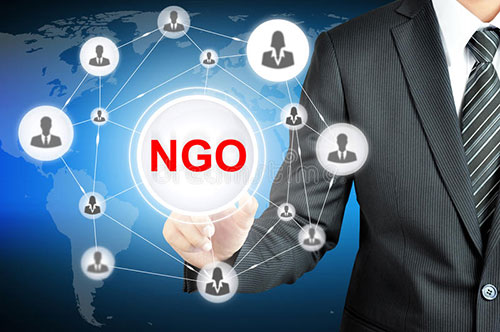
If you listen to politicians and journalists here, you will hear of that curious creature rajya novana sanvidane, a Non-State Organization (NSO). Where do you get them? In the uninstructed and dead minds of those who use those terms. In the real world, where politicians and journalists have developed minds, there are Non-Governmental Organizations (NGO). The United Nations is an organization set up by state parties, not by governments. It is true that agents of states, governments, make the United Nations work or fail. Governments may change but not the states, except rarely. When Eritrea broke away from Ethiopia, a new state was formed and was so recognised by the United Nations. However, the LTTE that tried to set up another state was crushed by the established state that it tried to break away from, and the UN had nothing to do with them.
This entirely unnecessary confusion, created out of ignorance, is so destructive that organizations completely loyal to the existing state, are made to be traitorous outfits, for they are ‘non-state organizations’ within the state. There are citizens of each state, but no citizens of any government. Government is but an instrument of the state. In most states there are organizations, neither of the state nor of government: religious organizations including churches. But none of them is beyond the pale of the state.
Those that speak of rajya novana sanvidane give that name partly because they have no idea of the origin of non-governmental organizations. NGOs came into the limelight, as donor agencies, noticed that some governments, in East Africa, in particular, did not have the capacity and the integrity to use the resources that they provided. They construed, about 1970, that NGOs would be a solution to the problem. Little did they realize that some NGOs themselves would become dens of thieves and brigands. I have not seen any evaluation of the performance of NGOs in any country. There was an incomplete essay written by Dr. Susantha Gunatilleka. NGOs are alternatives to the government, not to the state.
Our Constitution emphatically draws a distinction between the government and state, and lays down that the President is both Head of Government and Head of State (Read Article 2 and Article 30 of the Constitution.) It is as head of state that, he/she is the Commander of the Armed Forces, appoints and receives ambassadors and addresses Parliament annually, when a prorogued Parliament, reconvenes. He/she presides over the Cabinet as head of government. The distinction is most clear, in practice, in Britain where Queen Elizabeth is the head of state and Boris Johnson is the Prime Minister and head of government. However, in principle, Johnson is the Queen’s First Minister appointed by the sovereign, and resigns by advising her of his decision to do so.
In the US and in India the term ‘state’ has special significance. In India there is a ‘rajya sabha’ (the Council of States) whose members represent constituent States and Union Territories. Pretty much the same is true of the United States. In the US, executive power is vested in the President and heads the administration, government in our parlance. The Head of State does not come into the Constitution but those functions that one associates with a head of state are in the US performed by the President of the Republic. The US President does not speak of my state (mage rajaya) but of my administration, (mage anduva). Annually, he addresses Congress on the State of the Union. Our present President must be entirely familiar with all this, having lived there as a citizen of the US for over a decade. It is baffling when someone speaks of a past state as a traitor to that same state. It is probable that a government was a traitor to the state. ‘Treason against the United States, shall consist only in levying war against them, or in adhering to their (States’) enemies, giving them aid and comfort’. That a state was a traitor to the same state is gobbledygook.
Apart from probable confusion that we spoke of in the previous paragraph, it is probable that a president and other members of a government, including members of the governing party here, find it grandiloquent to speak of his/her/their state (mage/ape rajaya), rather than my government (mage anduva) or Sirisena anduva’ and not Sirisena state; it was common to talk of ‘ape anduva’ in 1956; politicians in 1956 were far more literate then than they are now.
When translating from another language, make sure that you understand a bit of the history of the concept that you translate. A public school in the US is not the same as a public school in the UK.
MAHADENAMUTTA









